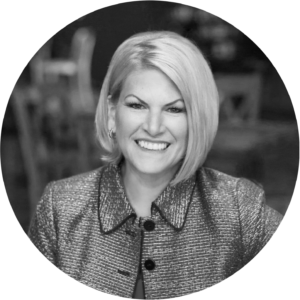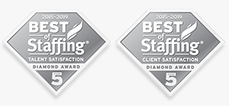Q&A: Lisa Nichols on being a life-long learner
We sat down with CEO, Lisa Nichols, to hear her thoughts on growth and personal development from her experience in leading a company with over 25 years of impact.
1) What does it mean to be a “life-long learner”?
Lisa Nichols: Being a life-long learner means you don’t stop learning when you complete your formal education – you are motivated internally to keep learning. Every day is an opportunity to be a better version of ourselves than the day before. We do this by learning from our experiences, mistakes and failures, successes, and the amazing people we meet along the way. Albert Einstein said, “Once you stop learning, you start dying.”
2) What does it look like to have a “culture of growth” in your company? What is the effect on those within it (employees)?
Lisa Nichols: Learning and growth is in the DNA of our Core Values. For Technology Partners to grow as an organization, it takes all of us at the individual level to bring our best self every day. Nothing of significance is ever accomplished alone – we need each other. We can all name organizations that did not foster a culture of growth and unfortunately they are no longer with us. So, growth is imperative to the sustainability and relevance of any organization as well as the individual, in my opinion.
This past May, Technology Partners celebrated its 25th birthday.
This 25-year-old journey has been marked by many defining moments but not all of those moments have been wins. We have tried many things that ultimately did not ever take root. For instance, the opening up of offices in other metros did not go how we anticipated but that did not stop us from continuing to try new business lines, new service offerings and new ways of thinking and improving. For example, almost 10 years ago, we launched a Solutions Group that has been incredibly successful and we have continued to grow that line of business year after year. Fast forward to this year and we launched a Tech Leadership Experience (TechLX) to help rising IT stars grow into more strategic thinkers and contributors. So far, it has been successful. I do not think having a culture of growth means that everything we set our hand to will succeed but rather, win or lose, we learn from every endeavor. We take the time to do a post mortem on each experiment and catalogue the lessons we learn; we repeat the habits and plans that worked and adjust those that didn’t.
3) What are some practical ways to implement a growth-oriented mindset, both in the long term and in your daily life?
Lisa Nichols: When you have a growth-oriented mindset your thought patterns and the language you use should reflect that and become different for both the everyday situations that arise as well as carry on into the long-term . For instance, when you have tried and not succeeded, instead of giving up, you evaluate the situation and adjust so you can improve, learn from what did not go right, and tell yourself, “I will do better next time.” Another practical way to foster a growth-oriented mindset is to regularly ask for feedback and then be prepared to rumble with the feedback you receive and allow yourself the time to do a self-examination. Socrates said, “An unexamined life, is not worth living”, and this very much still applies regardless of status. This also requires an attitude of humility because sometimes upon examination we find things that are not so attractive, things that we would rather not have stay. But take heart, when you have a growth-oriented mindset, you adopt the belief that you can change those things.
4) How do you perceive challenges within your life? What is your approach to this? How do you juggle all life has to throw at you?
Lisa Nichols: Let’s face it, as M. Scott Peck starts out in his book, The Road Less Traveled, “Life is Hard”. Life is not all unicorns and rainbows. Challenges are a part of life.
In fact, we are walking through a very personal challenge right now with a very sick daughter. It has all of our lives a little topsy turvy right now.
I know that this sounds cliché but we have just had to approach this challenge one day at a time and ask ourselves: “What do we need to deal with today?” We are doing the basic things we know to do such as good nutrition, making sure she is getting good rest, making sure we are doing what we can to help her manage the pain, surrounding her with the best team of doctors that we know of right now and praying for wisdom.
As hard as this is right now, I know that there are lessons she will learn through this journey and I know that there are lessons we will learn. This will be part of all of our stories of growth – I just pray that we don’t miss one lesson throughout the journey.
5) How does the word “desire” factor into one’s growth journey?
Lisa Nichols: No one can make the journey for you. There has to be an internal desire to grow. But it really takes more than that, we can have good intentions and even desires for growth but growth – it takes action and is often really hard work. Sometimes, the growth is not only hard but painful. For instance, say you receive some constructive feedback on a performance evaluation and it was not as you expected. We can look at that feedback one of two ways – as a gift, or we can dismiss it and chalk it up to a crazy boss. To take an objective look at ourselves and face our blind spots (and we all have them by the way) can be painful, but if we don’t ask ourselves what we are missing, we will never be the better version of ourselves we know we can be.






